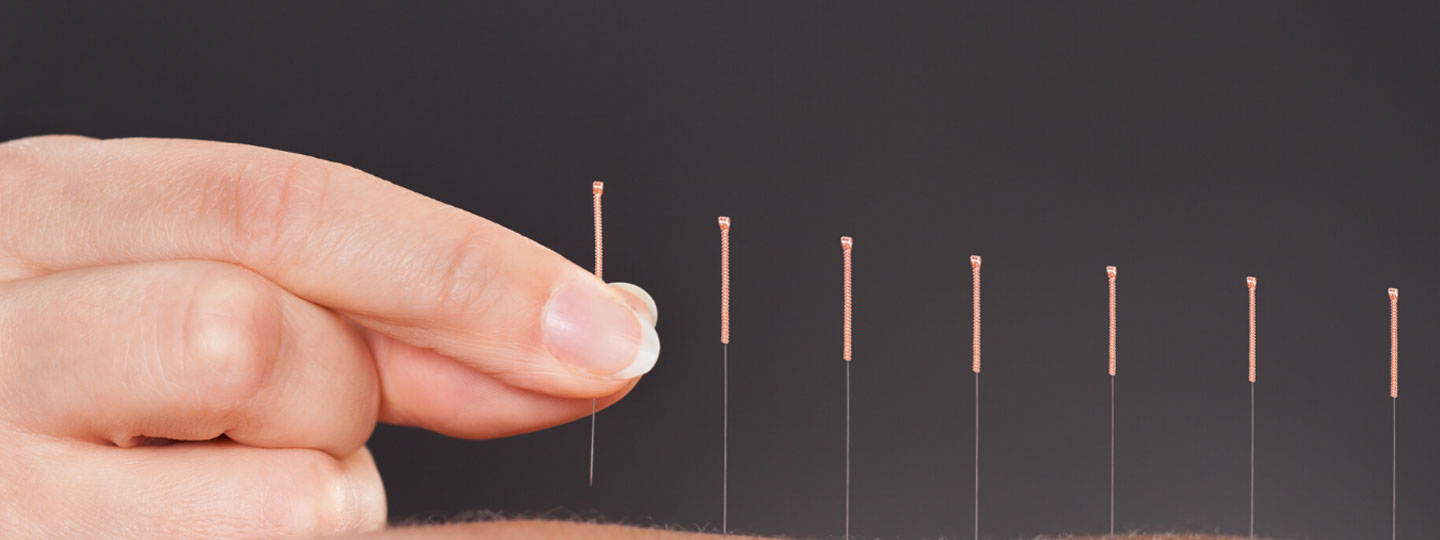Acupuncture – can it relieve pain?
06 March 2020
An increasing number of GPs and physiotherapists are using acupuncture alongside conventional treatments. But does acupuncture actually work?
What’s the evidence?
Acupuncture involves inserting fine needles into your skin at ‘trigger’ sites. There’s scientific evidence that acupuncture can help ease some chronic lower-back pain, tension headaches and migraine, but its role in arthritis is less clear-cut.
“Needling certain acupuncture points has been shown to affect areas of the brain that are known to reduce sensitivity to pain and stress, as well as promoting relaxation and deactivating the ‘analytical’ brain, which is responsible for anxiety.” says Mark Bovey, the British Acupuncture Council’s research manager.
In the British Medical Journal (BMJ) February 2018, healthcare professionals debated whether acupuncture could ease chronic pain.
Mike Cummings, medical director of the British Medical Acupuncture Society (BMAS), wrote that the best evidence comes from a 2017/18 review of data from 20,827 patients, showing that it has moderate benefits compared with usual care, but smaller effects compared with sham (placebo) acupuncture. The study also found that 85 per cent of acupuncture’s effects were still there after one year.
In the same edition of the BMJ, however, Professor Asbjørn Hróbjartsson, at the University of Southern Denmark, and Professor Edzard Ernst, at the University of Exeter, argued that doctors shouldn’t recommend acupuncture for pain “because there is insufficient evidence that it is clinically worthwhile”.
The National Institute for Health and Care Excellence (NICE) decides which medicines and treatments are available on the NHS in England and doesn’t currently recommend acupuncture for lower-back pain or osteoarthritis. But Scottish Intercollegiate Guidelines Network (SIGN) guidelines, updated in August 2019, recommend it for the short-term relief of pain in both conditions.
“There is some evidence that acupuncture helps arthritis in knees but, of course, it doesn’t reverse arthritis, it simply helps reduce the pain. I would say it is around 50 per cent successful in my patients; some get amazing results, but others get no benefit from it. My rule is that, if there’s no improvement after two sessions, we try something else.” says Tim Allardyce, physiotherapist and clinical director at Surrey Physio.
What does acupuncture involve?
A course usually involves weekly sessions for six to eight weeks. Your practitioner will first ask about your general health and medical history. You may not be able to have acupuncture if you’re allergic to metal, have a bleeding disorder, or take anti-clotting medicines. If you’re pregnant, your acupuncturist may need to avoid certain acupuncture points.
They’ll insert the needles just under your skin, leaving these in place for a few minutes to 30 minutes. A traditional acupuncturist may also apply heat using lamps and/or a dried herb called moxa – or a small electrical current may be passed through the needles to increase blood flow and relax the muscles.
“I find it quite relaxing. Acupuncture to keep me mobile and reduces the arthritis pain. My acupuncturist works on me systemically, as well as focusing on any area that’s sore.” says Frances Ives, 55, from Surrey.
Acupuncture needles are very fine, so you’re unlikely to feel any pain. You may feel a tingling, heavy or dull ache when the needles are first inserted, and a little dizzy or tired afterwards. “There are very few risks,” says Allardyce. “There’s occasional bruising, soreness and tiny spotting of blood.”
Find a practitioner
If you want to try acupuncture, check that the therapist is a registered healthcare professional or a member of a national acupuncture organisation. Medical acupuncture tends to focus on a specific area of pain, while traditional acupuncture takes a full-body approach.
“I’ve had acupuncture for arthritis pain, but I’m currently having it for nerve pain in my jaw, and sleep problems,” says Sharon Kilty, 58, from Cornwall.
Acupuncturists registered with the British Acupuncture Council have MBAcC after their name. British Medical Acupuncture Society (BMAS) members are healthcare professionals, trained in acupuncture.
This article is from our Inspire magazine. Read more from our Inspire magazine here.
We’re here too
If you want help, support or information, call our helpline on 0800 5200 520 (Monday to Friday, 9am to 6pm) or join our online community.